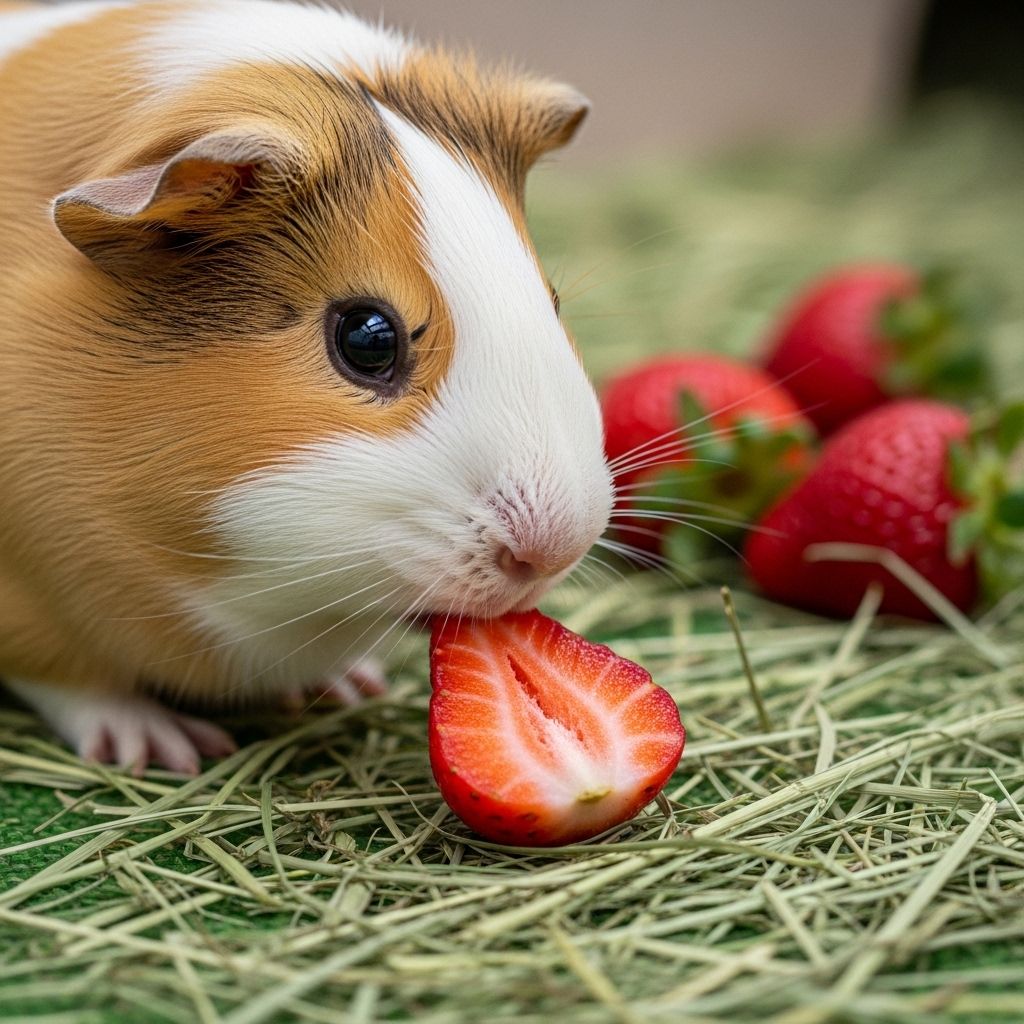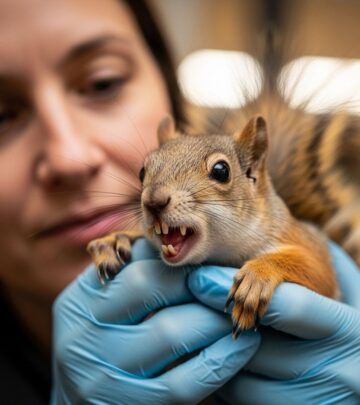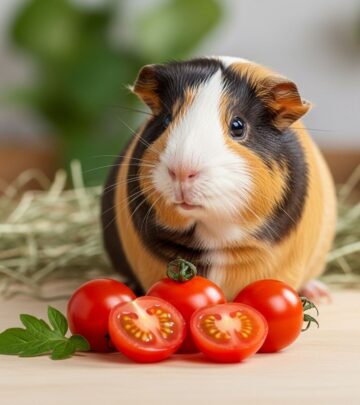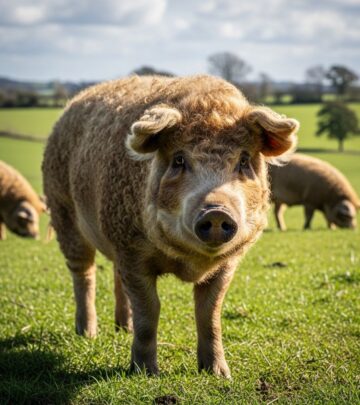Can Guinea Pigs Eat Strawberries? What Every Pet Owner Should Know
Clean, chopped berries offer vitamin C and fiber in tiny, safe servings.

Can Guinea Pigs Eat Strawberries?
Guinea pigs are beloved for their gentle nature and their enthusiastic love of fruits and vegetables. As a pet owner, it’s natural to wonder: can guinea pigs eat strawberries? The answer is yes—but with careful attention to quantity, preparation, and safety. Strawberries offer some health advantages and are a flavorful treat for guinea pigs, but like all sugary fruits, they should be offered cautiously as part of a balanced diet.
Understanding Guinea Pig Nutrition: What Should They Eat?
Before considering any new food for your guinea pig, it’s helpful to understand their basic dietary needs:
- Hay: Should make up about 80% of their diet. Timothy hay or other high-quality grass hay provides vital fiber for digestion.
- Pellets: Specially-formulated guinea pig pellets add extra nutrients and should account for around 20% of intake.
- Fresh Vegetables: A daily mix of safe veggies adds variety and nutrition.
- Fruits: Fruits are a treat—not a staple. They provide vitamins and flavor, but should be limited due to natural sugars.
Guinea pigs cannot manufacture their own vitamin C, making dietary sources critical to avoid deficiency and related issues like scurvy.
The Benefits of Strawberries for Guinea Pigs
Strawberries are more than just a sweet snack. Here’s what they can offer:
- Vitamin C: An essential nutrient for guinea pigs, helping prevent scurvy and promoting general immune health.
- Antioxidants: Strawberries contain antioxidants like anthocyanin and quercetin, which can help fight inflammation and support heart health.
- Dietary Fiber: Supports digestive function for guinea pigs and helps maintain healthy gut bacteria.
- Hydration: The high water content helps keep your pet hydrated, especially in warmer weather.
- Lower Sugar: Compared to some other fruits, strawberries are relatively low in sugar, making them a safer option for occasional treats.
Even the stems and leaves of the strawberry plant are safe—and may actually be healthier than the fruit, owing to lower sugar and higher fiber content.
Risks and Considerations: Feeding Strawberries Safely
Strawberries contain fructose and other natural sugars. While less sugary than fruits like grapes or bananas, overconsumption can lead to health problems:
- Digestive Upset: Too many strawberries may cause diarrhea, bloating, or a shift in gut flora.
- Obesity & Diabetes: Routine feeding of sugar-rich foods can increase risk over time.
- Pesticides and Chemicals: Strawberries are often exposed to agricultural chemicals during cultivation. Always wash thoroughly before serving.
- Dirt & Residue: As a ground-growing fruit, strawberries can accumulate dust and soil. Clean preparation is essential to avoid accidental ingestion of contaminants.
- Choking Hazard: Whole strawberries may be too large for guinea pigs. Cut into bite-sized pieces to minimize risk.
Guinea pigs may sometimes show allergic reactions to new foods, including fruits. Always introduce strawberries gradually and observe your pet for signs of discomfort like loose stools, itching, swelling, or refusal to eat normal food.
How Much Strawberry Should You Feed a Guinea Pig?
| Frequency | Portion Size | Type |
|---|---|---|
| 1–2 times per week | A small slice or 1 strawberry (cut up) | Fruit only; leaves & stems (optional) |
Strawberries should never be an everyday food for guinea pigs. They are best considered as a treat, offered in moderation to avoid overwhelming your pet with sugar.
Best Practices for Serving Strawberries
To ensure safe, healthy snacking for your guinea pig, follow these serving guidelines:
- Wash Thoroughly: Rinse strawberries to remove all traces of pesticides, chemicals, and dirt.
- Remove Stem: If offering just the berry, remove the tough green stem. The leaves and stem are safe if thoroughly cleaned.
- Cut Into Pieces: Slice the strawberry into small, bite-sized chunks to prevent choking.
- Feed Small Amounts: One slice or a handful of diced pieces per serving is enough.
- Introduce Gradually: Try a small piece at first and monitor your guinea pig for any digestive issues.
- Remove Uneaten Fruit: Take away any leftover strawberry within a few hours to avoid spoilage and bacterial growth.
Fresh vs. Frozen Strawberries: Does It Matter?
- Fresh strawberries are preferred; they retain more nutrients and have lower water content compared to previously frozen fruit.
- If using frozen strawberries, ensure they are *completely thawed*, have no added sugar, and are cut into safe pieces. Frozen fruit can be mushy, so check texture before serving.
Can Guinea Pigs Eat Strawberry Leaves and Tops?
Not only does the berry matter—guinea pigs can eat strawberry leaves and the green tops. In fact, these are lower in sugar and higher in fiber, making them a safe addition to the treat. Always ensure leaves and stems are washed well and free of pesticides.
Signs of Strawberry Intolerance or Overfeeding
Watch for signs that your guinea pig may not tolerate strawberries well or is consuming too much:
- Loose stools or diarrhea
- Lethargy or reduced activity
- Refusal to eat hay or pellets
- Excessive grooming or itching (possible allergy)
- Weight gain over time
If adverse symptoms appear, discontinue strawberries and consult a veterinarian.
Guinea Pig Treats: Other Safe Fruits to Try
Strawberries aren’t the only fruit guinea pigs can enjoy in moderation. Here are other safe options, with important notes on preparation and frequency:
- Apples: High in fiber, serve small wedges without seeds; skin is fiber-rich but must be washed thoroughly.
- Watermelon: High water content is good for hydration, serve pulp and washed rind, remove seeds.
- Grapes: Rich in antioxidants and vitamin C, but high in sugar. Only offer seedless, no more than 1–2 per week.
Always introduce new fruits gradually, observe for reactions, and keep portions small to protect your guinea pig’s health.
What Do Veterinarians Say?
Veterinarians and small pet experts recommend fruit as occasional treats, highlighting the importance of moderation and balanced nutrition. Some research points to benefits of strawberries for guinea pigs at risk for calcium stones, but specific feeding should always be discussed with your vet.
FAQs: Guinea Pigs and Strawberries
Can guinea pigs eat strawberries every day?
No. Strawberries should be fed only 1–2 times a week as a treat, not a daily staple.
Are strawberry seeds safe for guinea pigs?
Yes. The tiny seeds on strawberries are safe and do not pose a choking hazard.
Can guinea pigs eat strawberry leaves and stems?
Yes. These are safe when washed thoroughly; leaves/stems offer more fiber and less sugar than the fruit.
How do I know if my guinea pig is allergic or intolerant to strawberries?
Monitor for signs like diarrhea, itching, swelling, lethargy, or refusal to eat regular foods. Stop the fruit and consult a vet if symptoms persist.
What other fruits are good for guinea pigs?
Safe choices include apples (without seeds), watermelon (no seeds), grapes (seedless, in strict moderation), blueberries, and oranges (in very small pieces).
Tips to Keep Your Guinea Pig Happy and Healthy
- Offer a variety of fresh vegetables daily along with occasional fruit treats.
- Keep hay available at all times—fiber is crucial for digestion and dental health.
- Choose organic produce when possible to minimize chemical exposure.
- Always wash all fruits and vegetables before serving.
- Rotate treats so your guinea pig enjoys variety and doesn’t develop picky habits.
- Consult a small animal veterinarian before making significant changes to your guinea pig’s diet.
Conclusion: Strawberries as a Treat for Guinea Pigs
In summary, guinea pigs can eat strawberries but only occasionally, and with proper preparation. Their vitamin C and antioxidant content is helpful for guinea pig health, while low sugar levels make them safer than some other sweets. Always wash berries thoroughly, cut into small pieces, watch for reactions, and offer in moderation. The strawberry leaves and stems are safe and may provide additional fiber. As with all treats, balancing your guinea pig’s diet is key to a long, healthy life full of flavor and variety.
Additional Resources
- For further reading on safe foods for guinea pigs, consult a veterinarian or reputable pet care guides.
- Explore guinea pig forums and pet health websites for tips on nutrition and treat ideas.
- Always keep emergency contact info for your vet if you notice anything unusual after introducing new foods.
References
Read full bio of Sneha Tete












